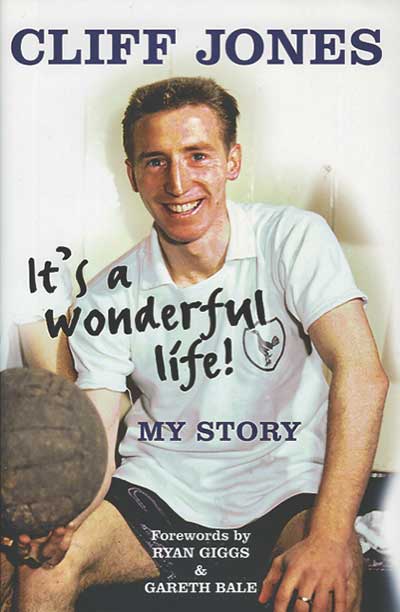Search: 'Bill Foulkes'
Stories
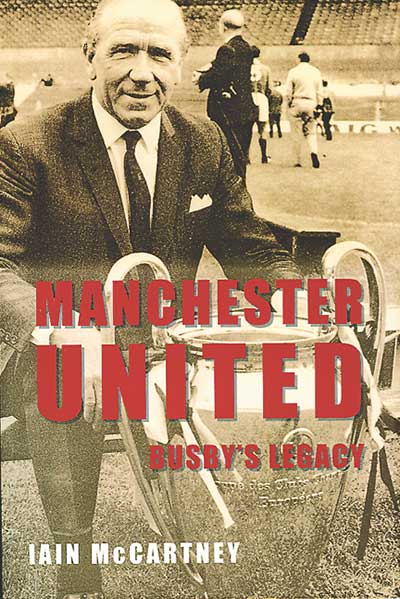 by Iain McCartney
by Iain McCartney
Amberley Publishing, £16.99
Reviewed by Charles Morris
From WSC 339 May 2015
A book about managerial succession and how a club attempts to replace an outstanding, long-serving supremo is timely, particularly in Manchester United’s case. Iain McCartney’s book follows his Rising from the Wreckage: Manchester United 1958-1968, which charted the club’s recovery from the Munich air tragedy to become the first English team to win the European Cup.
Rapid decline, however, is the theme of his sequel as he relates the club’s dismal failure to replace Matt Busby between 1968 and 1974 – when they were relegated from Division One – and to replenish the team of George Best, Denis Law and Bobby Charlton.
As a history of those six seasons it succeeds, but it seems a missed opportunity not to have broadened the format and considered other cases of managerial succession, particularly as United currently remain in a troubled transition from Alex Ferguson’s reign. Busby’s Legacy does, however, provide a case study in how not to handle such a handover. A tired Busby quit in 1969 after nearly 24 years that also included five domestic championships and two FA Cups. But he fatally remained as general manager and was allowed to choose his successor.
His choice of Wilf McGuinness proved disastrous – a history lesson ignored when Ferguson was allowed to select David Moyes. McGuinness, aged only 31, was Busby’s reserve team coach. He had no experience of managing a first team and was younger than some in an ageing United side, such as Charlton, Bill Foulkes and Shay Brennan. His authority was further undermined by initially being appointed only as “club coach” for an “unspecified probationary period”, and by the presence of Busby. The Scot kept the manager’s office while his successor was given a “corner cupboard”, and he later secretly tried to replace the hapless McGuinness with Celtic’s Jock Stein.
After McGuinness’s inevitable failure and removal in December 1970, Busby played a major part in the hiring of Frank O’Farrell from Leicester City. Although more experienced than his predecessor, O’Farrell’s record was “not trophy strewn”, including only one promotion with Torquay and an FA Cup runners-up and relegation with Leicester. Busby unsuccessfully tried the office belittlement trick on O’Farrell, too, and subsequently interfered in team matters.
One is tempted to conclude from these appointments that Busby, unconsciously, could not bear the idea of handing over to someone who might emulate his feats. After a disappointing 18 months O’Farrell was also sacked and replaced by Scottish national manager Tommy Docherty, who was unable to save the club from relegation before quickly restoring their fortunes back in Division One.
McCartney’s tale of a great team in decline for the most part rattles along, reminding us vividly of Best’s genius and his sad early fall into alcoholism, the complacency and ineptitude of United’s directors and the onset of two decades of appalling football hooliganism. It suffers, however, from an over-reliance on match reports, sticking only to the historic facts and dreadful editing. The book is littered with spelling errors and misused words, all of which are irritating and only one amusing: where the team’s performance is said to be “bisected with a fine toothcomb”. Readers paying £16.99 deserve better.
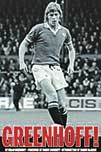 by Brian Greenhoff
by Brian Greenhoff
Empire, £14.99
Reviewed by Joyce Woolridge
From WSC 315 May 2013
Rarely can five years have generated as much football print as Tommy Docherty’s stint at Manchester United. Although Docherty’s managerial skills and style continue to polarise opinion, no one has argued he was a defensive genius. The statistics bear that out: away from home his United team always let in more than they scored, apart from their one year sabbatical in Division Two. Brian Greenhoff’s blunt autobiography, fully embracing the Yorkshire stereotype of never being afraid to call a spade a shovel, at least has the merit of bringing into focus what, especially in the mid-1970s, could be considered as one of the most cultured centre-half pairings in British football: himself and Martin Buchan. Sammy McIlroy here deems them “absolutely one of the great underrated defensive partnerships”.
When Greenhoff signed for United as a schoolboy in August 1968 he was unimpressed by Old Trafford’s shabby facilities and organisation, compared with what he had seen at Burnley. He credits coach and former player Bill Foulkes with stopping the apprentices cleaning the ground all afternoon and saving him from an unnecessary operation, by organising strength training after he broke his leg and was prescribed rehab of running up and down the Stretford End paddock.
An unashamed supporter of Docherty, Greenhoff was one of those young talents promoted by the manager, who found them far easier to deal with than the established names at Old Trafford. Accidentally, as he admits in the foreword, Docherty converted Greenhoff into an unlikely centre-half, given that he stood just over 5ft 10ins, and he went on to partner the only slightly taller Buchan for two seasons. Both were elegant ball players who countered their lack of height by pushing out quickly and pressing the opposition. United, claims Greenhoff, called this strategy “attack the ball”, adding that today’s Barcelona and Spain employ something similar.
If Greenhoff has nothing bad to say about Docherty, the same isn’t true for his replacement Dave Sexton (boring, overly obsessed with systems, afraid to deal with players directly), nor Allan Clarke (nobody liked him, obsessed with running and weighing players) who took over at Leeds shortly after they bought Greenhoff for £350,000. The post-United and potentially more interesting section of Greenhoff’s professional career is dealt with relatively brusquely. A stint in South Africa, initially as part of a “rebel tour”, which ends prematurely because of protests, passes without dealing with any ethical considerations. Greenhoff famously became part of another United pairing when his brother Jimmy joined United in 1976 (as Buchan’s brother George had done previously). The two brothers are reunited disastrously at Rochdale and Brian goes on to fulfil another stereotype by running a pub.
The book ends by “setting the record straight” on why the Greenhoff brothers haven’t spoken for 20 years. Like the rest of the contents, the revelations are unsurprising. However, despite the often familiar material, Greenhoff tells his tale with the unvarnished directness you’d expect from someone who once told striking Barnsley miners that they had to get rid of Arthur Scargill.
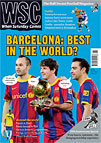 Cameron Carter reviews BBC2’s programmes on the Munich air disaster and questions the use of thematic dramatisation in the build-up to football matches
Cameron Carter reviews BBC2’s programmes on the Munich air disaster and questions the use of thematic dramatisation in the build-up to football matches
United (BBC2, April 24) was a dramatisation of the Man Utd story from Bobby Charlton’s breakthrough into the first team to the frantic rebuilding after the Munich air crash.
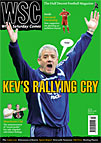 Joyce Woolridge examines the events and publications marking the 50th anniversary of the tragic incident
Joyce Woolridge examines the events and publications marking the 50th anniversary of the tragic incident
As the 50th anniversary of the 1958 plane crash that killed 23 people, including eight Manchester United footballers, approached, the club announced that there would be a new memorial “both significant and easily accessible to all who visit the ground”. This deceptively bland statement nevertheless revealed the club’s anxiety to avoid potential controversy. Why the commemoration of the tragedy should be so fraught with difficulty lies partly in the past, in the continuing dispute about the ways in which victims of the crash were and still are treated. Also, Man Utd’s recent ownership history has left the club, in the eyes of its critics, unworthy to “own” or exploit the disaster’s memory commercially.
